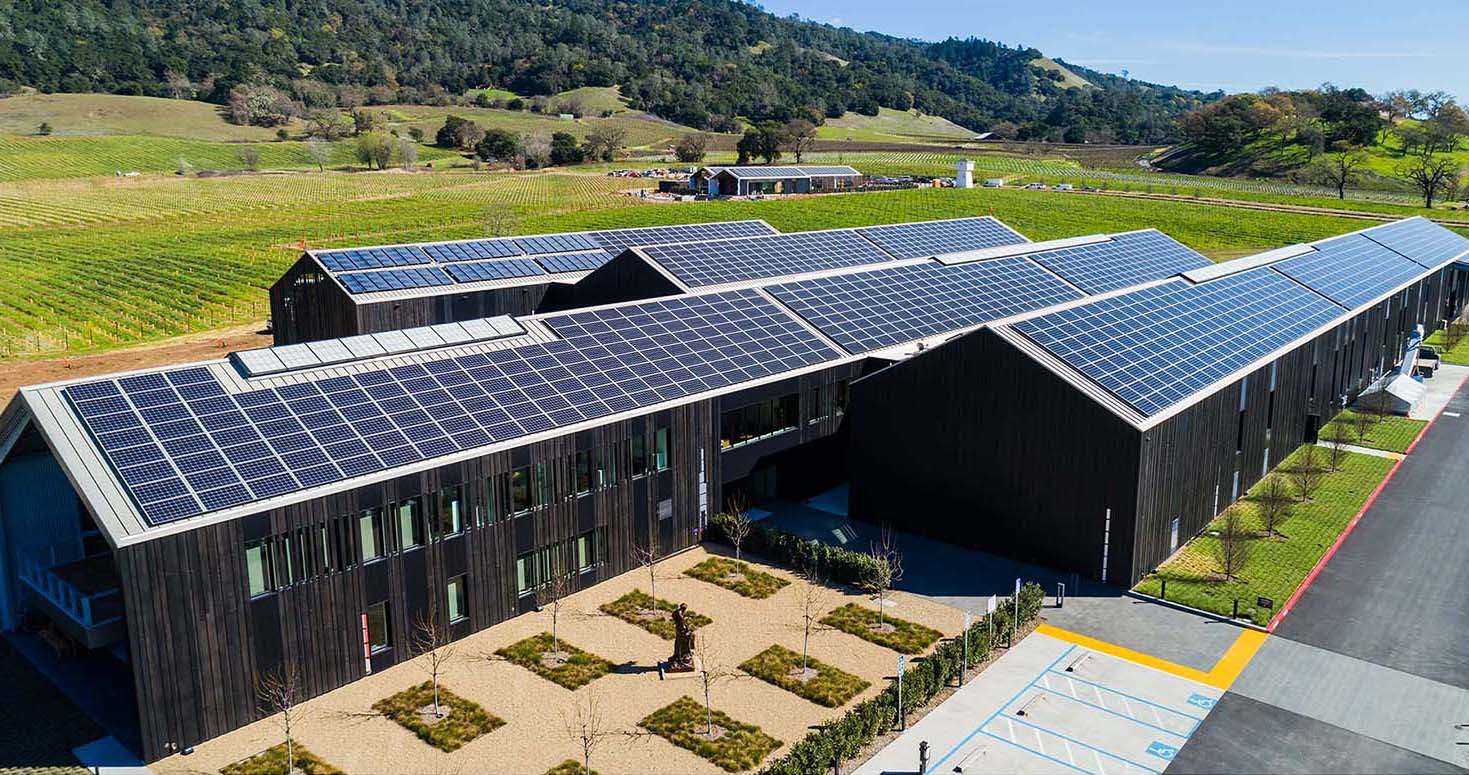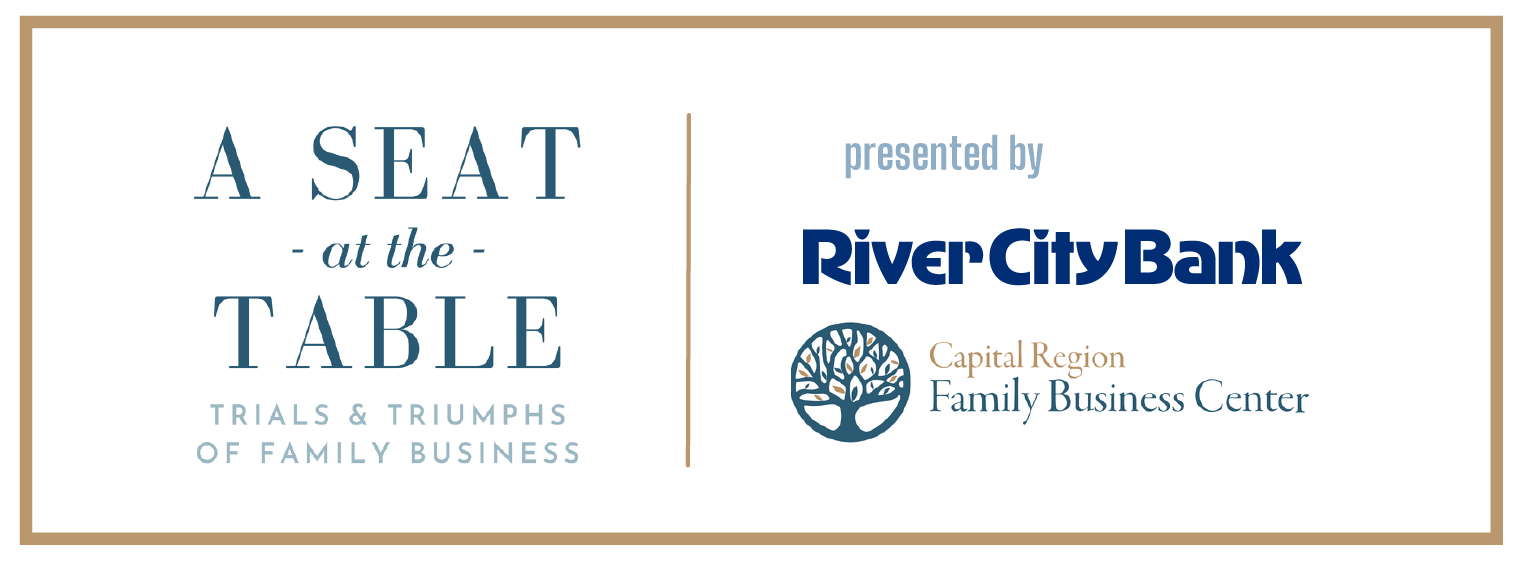By Rosa Cucicea, Director of the Clean Energy Division at River City Bank.

Like many other agricultural enterprises, the wine industry has always been one of high risks and high rewards. With roots in antiquity, it is also one of the world’s most innovative industries.
Here in the heart of California wine country, a growing number of wineries have implemented new ways to harness the best that the natural world has to offer, including an embrace of solar power generation and energy storage, the development of completely self-sustaining microgrids, and other innovative solutions to drive greater energy independence and long-term resilience.
This forward-thinking approach requires partnerships between wineries and clean energy providers, as well as flexible approaches to financing and leveraging tax incentives
Sustainability in Action: Silver Oak
Named “California’s most eco-conscious winery” by the San Francisco Chronicle, Silver Oak has established a reputation for leading the way when it comes to sustainability. Its wineries in Napa Valley and Alexander Valley were the world’s first product wineries to be LEED Platinum Certified by the U.S. Green Building Council.
Haley Duncan, sustainability manager and a third-generation family leader at Silver Oak, says her family’s business has been laser-focused on sustainability for the past 10 years. This includes planning for the reduction and reuse of natural resources such as solar energy and water, as well as incorporating renewable technologies that will help facilities continue to produce great wine.
“We invested in technology that we weren’t previously familiar with,” Duncan said. “There was a steep learning curve as we continued construction, and the reaction from our customers since opening the new Alexander Valley tasting room has been overwhelmingly positive.”
Silver Oak’s Alexander Valley facility includes solar panels on all roof surfaces, with nearly 2,600 panels in place, as well as solar-thermal panels to heat water without tapping into the external power grid and a secondary system of CO2 heat pumps that can heat water to clean all cellar equipment. In April 2020, the facility earned a Living Building Challenge (LBC) certification from the International Living Future Institute. It was the only manufacturing facility to receive such recognition.
Microgrids and the Power of Hydrogen: Stone Edge Winery
The team at Stone Edge Farm Estate Vineyards and Winery has pushed the boundaries of alternative energy further with the integration of a unique, self-contained microgrid that incorporates both solar energy and a state-of-the-art hydrogen power system.
Stone Edge owner Mac McQuown has worked directly with a team of engineers for the better part of six years to make his farm fully energy independent, with no need to rely on PG&E for electricity.
“Hydrogen is a safe, readily available energy source, and the system we have in place is 4.5 times more efficient than a combustion engine,” McQuown said.
“This represents a huge leap forward for wineries and other businesses that are looking for sustainable energy solutions,” he continued. “There’s seemingly no limit on the amount of hydrogen you can produce and store with the right tools in place.”
The hydrogen power system relies on a sophisticated electrolyzer that utilizes small amounts of electricity to break down rain water into hydrogen and oxygen. The hydrogen produced in that exchange is then stored and used for power, primarily during the winter months when solar energy can be more challenging to collect.
According to McQuown, the time is coming when hydrogen production will be possible from salt water sources as well, which will greatly enhance the possible applications for hydrogen power systems like the one at Stone Edge.
The facility has been running in “island mode,” completely independent of PG&E, since December 2019. McQuown noted that Stone Edge’s marginal cost of electricity is zero, as is its marginal carbon footprint.
Financing Sustainability
While sustainable farming and clean energy initiatives may be attractive for wineries and other businesses throughout the North Bay, funding remains a major hurdle. Even with recent reductions in operating costs for solar energy and microgrid technologies, future-minded teams can have difficulty getting started.
Michael Kremer, co-founder and head of strategic finance for White Pine Renewables, said his company has seen the economic equation improving every year.
“The rise of battery storage has been a game changer,” he noted. “Batteries enable customers to shift electricity consumption from the grid to an independent power system at times when the power grid is in high demand and PG&E’s rates are higher. Battery costs have decreased as well in recent years, which opens new opportunities for businesses to implement sophisticated solutions for the long haul.”
White Pine Renewables works with wineries, farms and other businesses to deliver solar energy solutions under a Power Purchase Agreement (PPA) that can deliver the energy savings of a self-contained solar power grid without the burden of maintenance costs, permitting and other common sticking points. PPA financing is an alternative solution to owning the renewable energy assets directly and can be a cost effective solution for businesses that do not have sufficient ability to utilize tax credits.
White Pine coordinates the registration and permitting of the solar equipment, as well as ongoing maintenance obligations, and property owners pay a contracted rate to purchase the solar power generated on their properties and land.
Possible Tax Benefits
A number of sustainability programs and innovations may also qualify for tax credits and deductions, which can reduce out-of-pocket costs and limit the amount of financing needed. Derrick Wilkinson, a CPA and senior manager with Moss Adams, commented that many wineries and other agriculture-based businesses don’t realize how much they may qualify for in terms of tax deductions and R&D credits.
For building owners who implement a system that achieves an efficiency increase of more than 50 percent, for example, a Section 179D tax deduction of $1.80 per square foot may be within reach.
“Most people think that R&D credits and other tax scenarios apply only to major manufacturing operations or that qualifying initiatives have to be completely ‘new to the world,’ but that isn’t the case,” Wilkinson said.
“There are a number of programs that may qualify for credits and deductions, which will help fund the businesses’ labor, material and third-party costs for these programs. You can even go back a number of years to review whether or not you qualify for credits that were made available in past years,” he said.
To maximize tax incentives, Wilkinson advised wineries to stay proactive and loop in a CPA very early on. This will ensure that documents are tracked appropriately in the moment. Qualifying programs may include smoke taint removal initiatives, dry irrigation and cultivation efforts, wastewater treatment processes, CO2 capture programs and new automation systems to address labor shortages.
Getting Started
Sustainability is the way of the future, and there are a number of long-term benefits to pursuing new systems and incorporating new technologies to make today’s energy-dependent wineries more self-sufficient and energy independent.
As Duncan noted, “The most important thing is to take the first step. You’ll learn a lot along the way, but it’s important to focus on one project at a time so you can apply what you’ve learned to the projects that follow.”
Helping to connect the dots is why third-party providers such as White Pine Renewables exist, and looping in tax professionals such as Moss Adams early is paramount. It is also the core purpose of River City Bank’s Clean Energy Division, which provides credit and cash management services for clean energy projects. As the bank of choice for a majority of California’s Community Choice Aggregation (CCA) providers, River City Bank is committed to supporting its clients and empowering them with the resources needed to enact meaningful and lasting change.
Named one of Sacramento Business Journal’s “50 Fastest Growing Companies” for each of the past five years, River City Bank provides tailored, executive-level service and solutions to businesses throughout Northern California. It is the largest independent, locally-owned and managed bank in the Sacramento region and has commercial banking offices in Petaluma and San Francisco.
Rosa Cucicea is Director of the Clean Energy Division at River City Bank. In this role, she supports a variety of Community Choice Aggregation (CCA) providers and other clean energy businesses throughout California with custom-tailored solutions spanning start-up capital, lines of credit, renewable energy project financing and custodian “lockbox” accounts.



